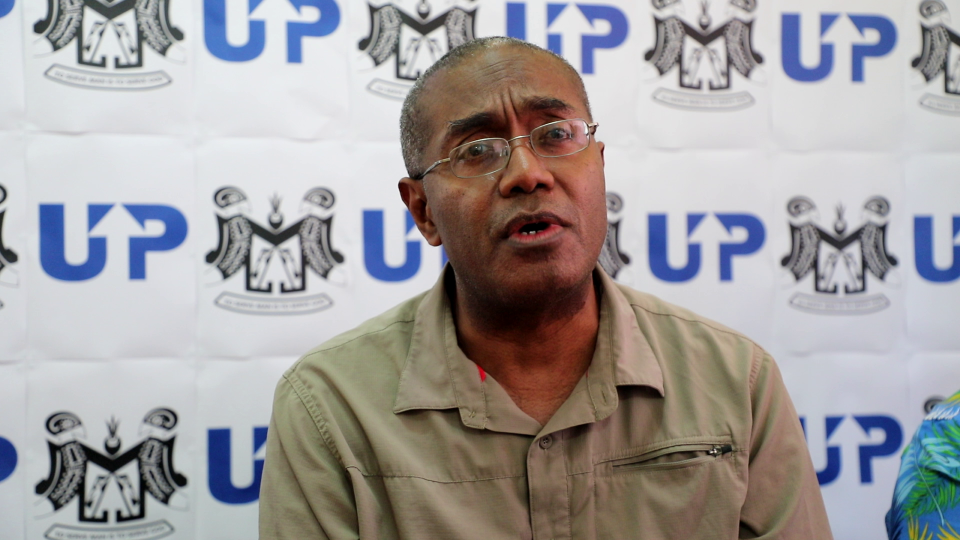BY JOHN HOUANIHAU
THE Solomon Islands have been identified as economically vulnerable by the Solomon Islands United Party (UP). The party warned that the country’s reliance on limited revenue streams and lack of economic diversification could leave it susceptible to external shocks and crises.
The economic vulnerability of the Solomon Islands was highlighted in a recent press conference by the UP. The party pointed to a heavy dependence on logging as the main source of revenue, noting that fluctuations in the global market price for the commodity could have a significant impact on the country’s economy.
“Solomon Islands continues to be a country with little diversification in our economy and trade. Logging and the so-called sun-set industry are still the biggest export earners for the country. The Chinese market continues to be our biggest for logs,’’ said Kenilorea Jnr.
“This dependency on a single market for a single commodity breeds vulnerability for a nation [we are vulnerable], depending on one commodity on one market. What has the Democratic Coalition Government for Advancement (DCGA) done to make us less economically vulnerable to one market,’’ he said.
He said that the cost of electricity in the Solomon Islands continues to be the highest in the Pacific and in the world.
“This cause impacts the livelihoods directly, impeaches the growth of local businesses, and hinders investments in the nation. This has been the case for the last ten years now, and what has DCGA done to address this issue?
He further said that the state of our health services in the country continues to be a source of embarrassment at the very least and has jeopardized the health and wellbeing of citizens of this nation.
“Clinics faced closures; medicines and medical supplies are reportedly and constantly low in supply. Diseases like malaria are coming back; even something once reportedly eradicated like leprosy is also reportedly making a return to our shores. Non-communicable diseases (NCD) continue to claim the limbs and lives of Solomon Islanders. What has been the response of the DCGA over the last term to this very present need that hundreds of Solomon Islanders have suffered from?’’ said the former MP for East Are’are.
“The state of the critical infrastructure of the country needs urgent attention.
“Bad roads lead to poor economic output. Bridges and the internet connect people, yet DCGA has focused on sporting infrastructure. Sure, it is an important infrastructure, but I would argue not vital or critical infrastructure,’’ he said.
“DCGA has taken out a loan reportedly worth some over half a billion SBD from China to fund the construction of a network of terrestrial telecommunication towers when there are newer and much cheaper technologies. That, we would argue, suits rural communities and is already available on the market.
“We are going into debt or using yesterday’s technology; is this wise? The recently completed Sports City and all its infrastructure will need maintenance.
“Last year, DCGA allocated SBD40 million to maintain the stadiums. Who will be getting these contracts? Is this money going to be paid to ECCE, who have announced themselves to be the company that would be looking after the maintenance of the stadiums for the next two years, or could the money be used for a better purpose?’’ said Hon. Peter Jnr.
Kenilorea Jnr said that Solomon Islands continues to slip down the ranking of the Human Development Index (HDI), a key measurement of human development in any nation according to the UN to gauge the level of development of any country in the world.
He said that the Solomon Islands were ranked 155 out of 191 countries.
“This is a very poor ranking. What has the DCGA done to reverse this slip? Reports note a slipped in the formal employment sector by the National Provident Fund (NPF) contribution in 2021 of around 55,000, down from the previous year’s contribution of some 60,000,’’ he said.
He pointed out that for a country with a population of 730,000 people, this represents only 8% of the population that actually pays NPF.
“So there are no clear policies on how to implement or reverse the strength, and once again, youth employment in the Solomon Islands is among the lowest in the Pacific Islands nation. Again, this is no secret, but what has DCGA done over the last four and a half years to reverse this trend to create jobs, particularly for the youth,’’ said the UP leader?
He said that it is also reported in parliament that only 4% of the population have a tertiary degree or education in the Pacific Islands.
“We hear in parliament that only 4% of the population has a tertiary degree or education. Again, the lowest in the Pacific Islands. Knowing this very low statistic, we have been taking measures to address and boost the numbers of our tertiary-educated Solomon Islanders. Education remains a very hard and high cost for families to bear in this country,’’ he said.
According to Kenilorea Jnr, the gross national income of the Solomon Islands per capita is estimated to be some 18,000 SBD. That is the amount of money that economists around the world estimate to be in the pocket of each Solomon Islander every year.
